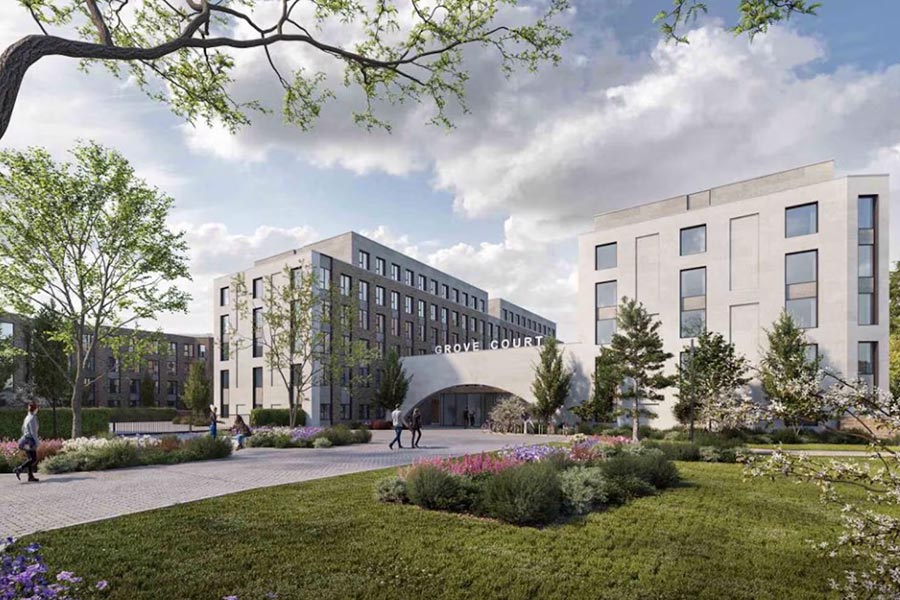A developer seeking to build a €160m, 698-bed student complex near University College Dublin (UCD) has lost its High Court challenge, writes Helen Bruce.
Colbeam Ltd had opposed Dún Laoghaire-Rathdown County Council’s decision to rezone the proposed site from residential use to open space – effectively crushing the accommodation project.
The council said its decision was based on “proper planning and sustainable development”.
Colbeam countered that councillors had taken “irrelevant considerations” into account, and had not considered relevant factors when they rezoned the land.
However, Judge David Holland ruled that both the developer’s arguments had failed.
The court heard Colbeam bought the site in 2017 from the Congregation of the Religious of Jesus and Mary, for €13m.
It has since invested a further €10m in preparation for development.
The five-acre site at Our Lady’s Grove, Goatstown Road, Dublin 14, had been zoned for residential use in the 2016- 2022 Development Plan.
The developer intended to build a 698-bed student accommodation complex, about 850 metres from UCD.
Plans were stalled when the 2022-2028 Development Plan, voted for by councillors, rezoned the Colbeam lands from residential to public open space use – “to Colbeam’s obvious commercial disadvantage”, the judge said.
Colbeam argued councillors had regard for “irrelevant considerations” when they adopted motions to rezone the land during a December 2020 meeting.
Judge Holland said the developer claimed there was a prejudgement on the part of the elected representatives concerning future residential development.
It also pointed to “controversies” over former religious sites, and the perception of the amount of religious land “being sold to developers”.
Fine Gael councillor Barry Saul had said that there was a “moral obligation” on the religious order, and the planning system, to allow the community to use 25% of the campus.
Colbeam claimed the council executive failed to intervene and direct councillors to disregard irrelevant considerations.
It said the council did not consider determinations from An Bord Pleanála, in 2020 and 2021, that residential use of the Colbeam land was consistent with proper planning and sustainable development.
Neither did the council consider evidence produced by KPMG that open space zoning was not necessary on the site, it added.
Judge Holland said Colbeam was entitled to vehemently disagree with the councillors on matters of planning judgment and planning merit – but added that a difference of view was not a basis to quash a decision.
He said Cllr Saul was wrong to invoke the alleged moral obligation of the order, but added that he only mentioned this explicitly on one occasion.
The general thrust of the council’s discussions focused on its view that the proper planning and sustainable development of the area required 25% of it to remain as open space.
“The realisation of those aims required the zoning of the Colbeam Lands as open space,” the judge said.
“There is no suggestion these were not valid planning considerations, and they were at very least the primary considerations which informed the zoning decision.”
He said the desire to protect the area’s open space “tells Colbeam precisely why the members decided as they did”.
He listed the case for mention and final orders in November.

Local residents took a successful challenge against the same project, ensuring fast-track permission for student accommodation was overturned by the High Court in 2023.
Residents said they were not opposed to a development at the site, but believed the Colbeam project represented a significant over-development.
They also had concerns as to the viability of dedicated student accommodation on the site.











